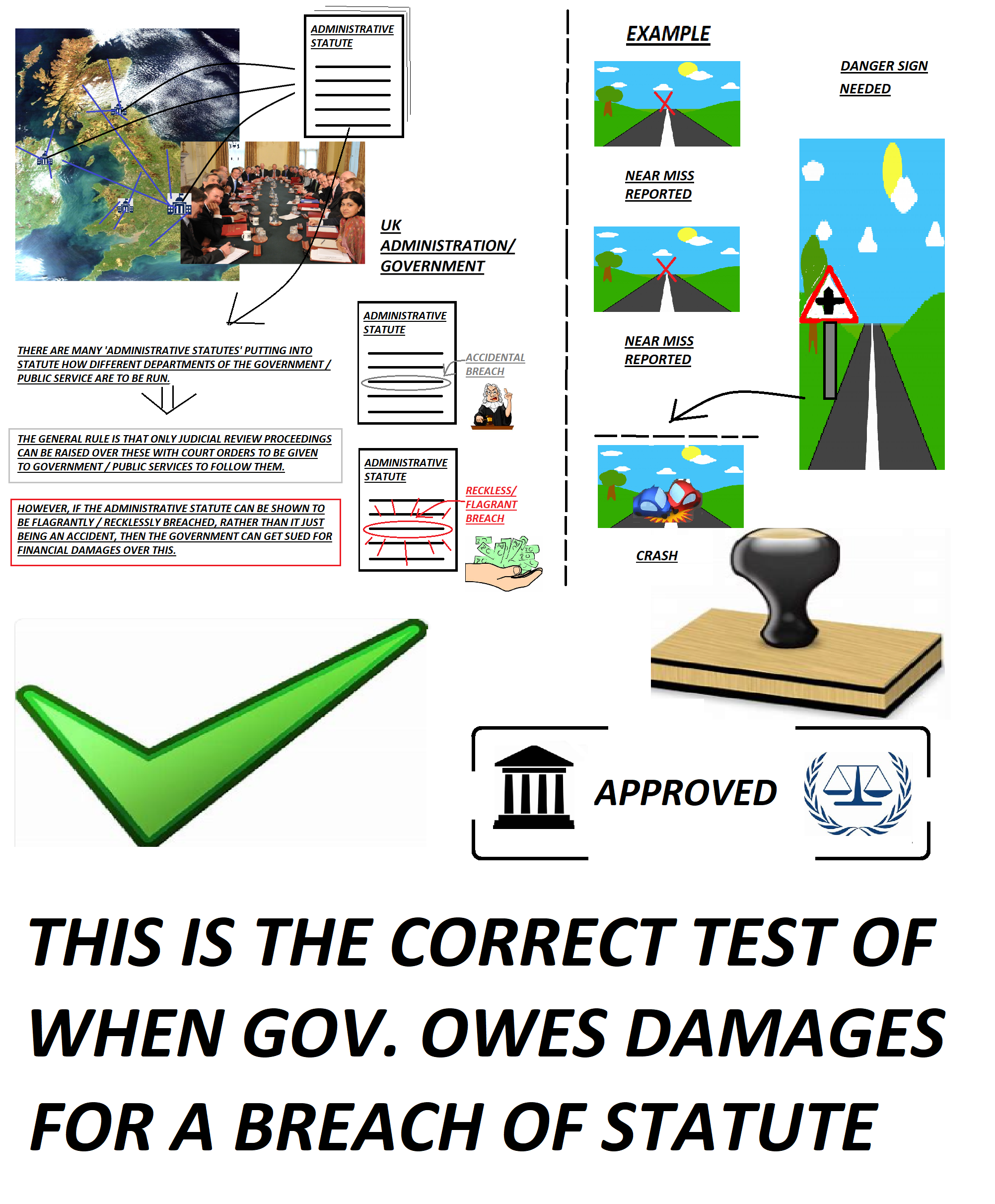Gorringe (by her litigation friend June Elizabeth Todd) (FC) (Appellant) v. Calderdale Metropolitan Borough Council (Respondents) [2004] UKHL 15
Citation:Gorringe (by her litigation friend June Elizabeth Todd) (FC) (Appellant) v. Calderdale Metropolitan Borough Council (Respondents) [2004] UKHL 15
Rule of thumb:Where a Government get notice of a part of a road being dangerous do they have to do anything about it? Yes, they are expected to ameliorate this or else they can be held financially liable for any accidents which occur there.
Background facts:
The basic facts of this case were that a driver collided with a bus head-on after the driver of the car had veered over onto the other side of the road.
Parties argued:
The driver argued that the road was inherently dangerous and that there were no warning signs provided like there should have been, and so she argued that the Government were liable for the collision.
Judgment:
The Court held that the Government were not responsible. The Court affirmed that this was indeed quite a dangerous part of the road, as this case showed. However, the Court held that there were no clear road safety laws, either by statute or regulation, which were not complied, and the architectural planning permission was complied with. In the absence of the case being made out clearly by Gorringe then the Government could not be sued in damages in these circumstances.

Ratio-decidendi:
‘[A]n overriding imperative is that those who drive on public highways do so in a manner and at a speed that is safe having regard to such matters as the nature of the road, the weather conditions and the traffic conditions. Drivers are first and foremost themselves responsible for their own safety.’ ‘There are, however, a few remarks that I would wish to make about negligence and statutory duties and powers. This is a subject of great complexity and very much an evolving area of the law. No single decision is capable of providing a comprehensive analysis. It is a subject on which an intense focus on the particular facts and on the particular statutory background, seen in the context of the contours of our social welfare state, is necessary. On the one hand the courts must not contribute to the creation of a society bent on litigation, which is premised on the illusion that for every misfortune there is a remedy. On the other hand, there are cases where the courts must recognise on principled grounds the compelling demands of corrective justice or what has been called "the rule of public policy which has first claim on the loyalty of the law; that wrongs should be remedied”’, Lord Steyn & Lord Scot
Warning: This is not professional legal advice. This is not professional legal education advice. Please obtain professional guidance before embarking on any legal course of action. This is just an interpretation of a Judgment by persons of legal insight & varying levels of legal specialism, experience & expertise. Please read the Judgment yourself and form your own interpretation of it with professional assistance.

